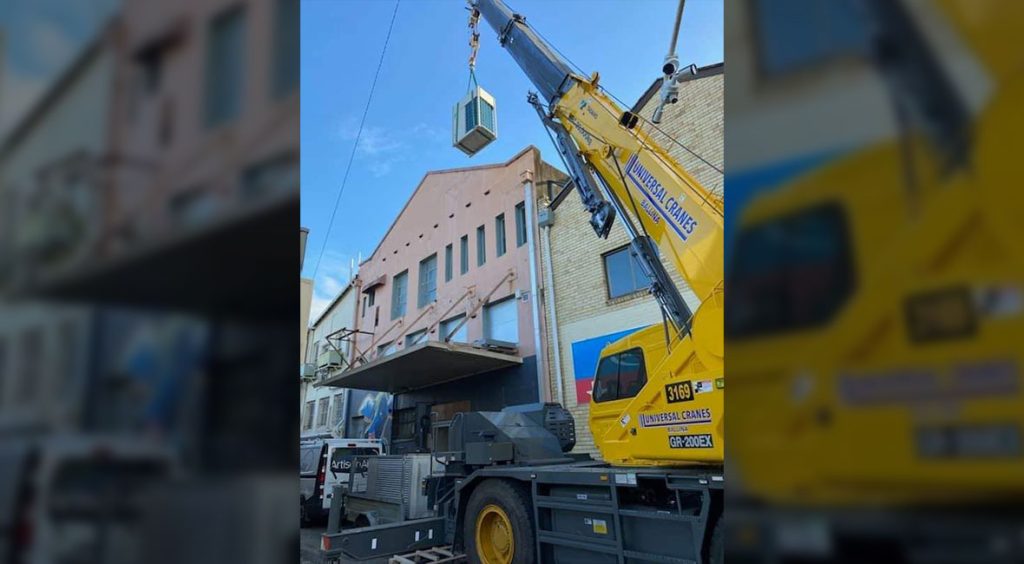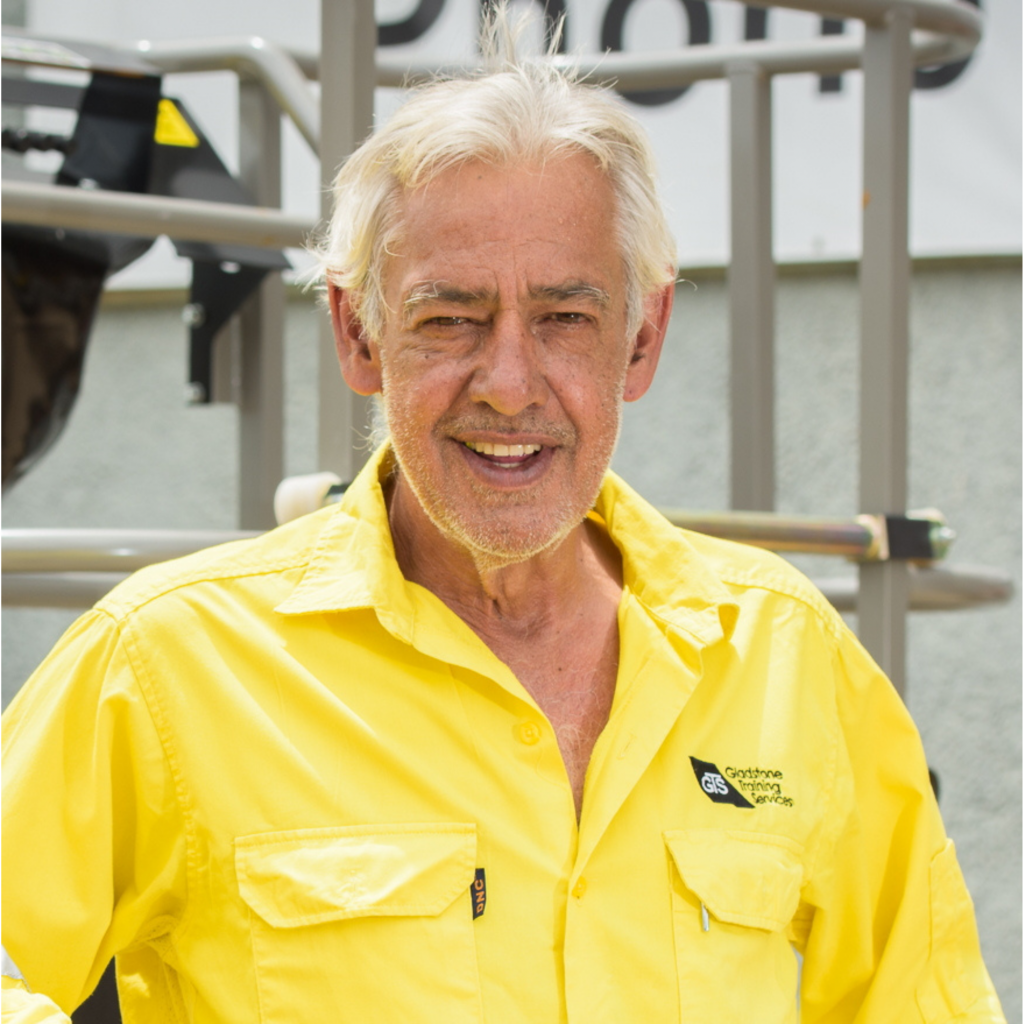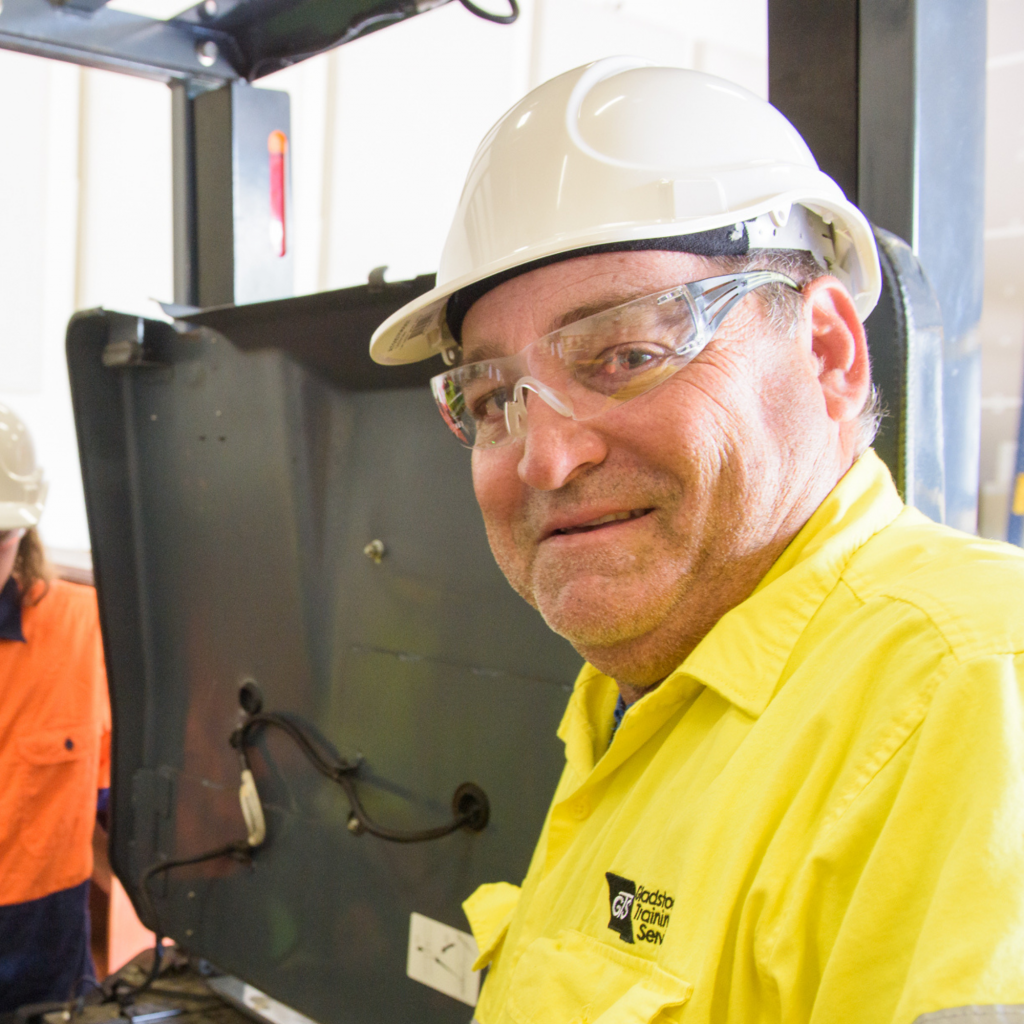Crane Operator Training
Providing Nationally Recognised Crane Operator Training to keep Australia safe in the Workplace.
We come to you
Crane Operator Training (Onsite)
GTS can deliver Crane Operator Training on your site for the following High Risk Licences (and their RII equivalents)
- Non-slewing Crane (e.g. Franna)
- Bridge/Gantry HRWL (Cabin Driven)
- RII Bridge/Gantry Crane (Pendant Controlled)
- Slew Crane up to 20 tonnes
- Slew Crane up to 60 tonnes
- Slew Crane up to 100 tonnes
- Slew Crane over 100 tonnes
GTS can also deliver supporting qualifications often needed with a crane ticket, including:
- Dogging
- Rigging
- Conduct Lifting Operations
- Various other machinery tickets

FULFILL A DREAM: BECOME A CRANE OPERATOR
As an aspiring construction worker, have you ever looked up at a towering crane gracefully lifting a pre-fab building section, or maybe a shipping container, and thought to yourself, “There’s no way I could handle that!”? On the contrary – with the right training, you too could be the one in the cab, meticulously maneuvering those incredible machines.
The world of crane operation is a fascinating one, demanding a unique blend of skill, precision, and safety awareness. But before you can take the reins (or joysticks, as the case may be) of a crane, there’s an important step – Crane Operator Training.
DEMYSTIFYING CRANE TRAINING: WHAT YOU NEED TO KNOW
This training equips our aspiring crane operators with the knowledge and practical skills necessary to safely and effectively operate various types of cranes. This can include mobile cranes, those familiar wheeled giants that dominate construction sites, or perhaps gantry cranes, the industrial workhorses that tirelessly move materials within factories and warehouses.
Here’s where things get interesting: the type of crane training you undergo will depend on the specific crane you want to operate. Think of it like getting a driver’s license – you wouldn’t use the same license to drive a motorcycle as you would a school bus, right? Crane operation follows a similar principle.
WHAT CAN I EXPECT FROM THE CRANE TRAINING?
Many reputable training providers offer comprehensive programs that combine classroom instruction with hands-on experience. In the classroom, trainees delve into the intricacies of obtaining a crane operator ticket, covering topics like:
Crane capacity and limitations: Understanding the weight a crane can safely lift at various reaches is paramount.
Rigging procedures: Learning how to properly secure and lift loads using slings, hooks, and other rigging equipment is crucial for safe operation.
Crane pre-operation checks: Just like pilots perform pre-flight checks, crane operators must inspect their machines with a regulated check-list before each use.
Lift planning and execution: This involves meticulously planning the path a load will take, considering factors like obstacles and weight distribution.
Safety regulations: Crane operation is heavily regulated, and trainees gain a thorough understanding of the relevant safety codes and best practices.
The hands-on portion of crane training allows trainees to put their newfound knowledge into practice. Under the watchful eye of experienced instructors, they get to operate cranes in a controlled environment, performing lifts and maneuvers they’ll encounter in the real live situations on a building site.
GET CERTIFIED AS A CRANE OPERATOR
Getting certification for crane operator training can be for various types of cranes, including gantry cranes and non-slewing cranes. Gantry cranes are stationary, typically used for lifting heavy loads within a fixed area, while non-slewing cranes are mobile and do not rotate.
Crucial for safe lifting and positioning of heavy materials and equipment, crane operator training is perhaps the most important training on any site. The training also includes understanding load capacities, proper rigging techniques, and adherence to safety guidelines to prevent accidents and damage.
HOW IMPORTANT ARE CRANE OPERATOR TICKETS?
Once you’ve successfully completed a crane training program and passed the required exams, you’ll be well on your way to a rewarding career in crane operation. Upon completion, you’ll typically receive a crane operator ticket, also known as a certification.
This ticket acts as formal recognition of your qualifications and signifies to potential employers that you have the necessary skills and knowledge to operate a crane safely and effectively. Think of it as a badge of honor in the crane operator community – something that you can be proud of and something that will set you up for a lifelong career.
WHAT OTHER CRANE TICKETS ARE THERE?
You can also obtain a gantry crane ticket plus a non-slewing crane ticket which refers to certifications or licenses that operators receive upon completing training and passing specific assessments. These credentials validate an operator’s competency in operating specific types of cranes.
Having the appropriate tickets ensures that operators are qualified to operate the specific crane types for which they are certified. It’s often a legal requirement and helps maintain a skilled and competent workforce to the highest level.
WHAT OPPORTUNITIES ARE THERE WITH DIFFERENT OPERATOR TICKETS?
The beauty of crane training is that it can open doors to a diverse range of career paths. Let’s revisit the mobile crane versus the gantry crane example. Earning a crane operator ticket allows you to work on construction sites, shipyards, or even disaster relief zones. A gantry crane operator ticket, on the other hand, might lead you to a career in manufacturing, warehousing, or even power plants.
The choice depends on you. Including your interests and career goals. The good news is that with the right training and experience, you can even pursue specialisations within the field. For instance, some operators choose to focus on operating heavy-duty all-terrain cranes used in lifting massive objects, while others might specialize in operating delicate tower cranes used for high-rise construction projects.
A REWARDING CAREER BUILT ON SKILL AND DEDICATION
The world of crane operation isn’t just about hoisting massive beams or shipping containers – it’s about precision, planning, and a healthy dose of responsibility. It’s a career path that demands a unique blend of technical knowledge and physical skill. Operators become masters of their machines, understanding the intricate mechanics and capabilities of these modern marvels. However it’s not all about levers and joysticks. A crucial element of crane operation is meticulous planning. Every lift, and every maneuver, requires careful consideration of weight distribution, reach limitations, and potential obstacles. Sometimes, it’s a mental chess game played with tons of steel and concrete.
However, the rewards are undeniable. Crane operators play a vital role in shaping the world around us. From the towering skyscrapers that grace our cityscapes to the intricate assembly lines that churn out everyday necessities, their contribution is undeniable. They are the invisible hands behind the construction boom, the unseen force that keeps industries humming.
The next time you witness a crane gracefully pirouetting a load into place, take a moment to appreciate the dedication and expertise that goes into every movement. It’s a testament to the countless hours spent in training, mastering the intricacies of safety protocols, lift calculations, and the delicate dance of maneuvering these powerful machines. Maybe with the right training and a thirst for a new challenge, you could be the one behind the controls one day, contributing to the ever-evolving landscape around you.
Our Trainers For Crane Operator Training

Garry Douglass
Managing Director

Garry Douglass
Managing Director

Marc McDonald
Trainer

Marc McDonald
Trainer

Steve Gehrmann
Trainer

Steve Gehrmann
Trainer

Dave Smith
Trainer

Dave Smith
Trainer
What We Do
Gladstone Training Services is a local provider of industry qualifications. Our no-fuss approach is about providing what you need to use your skills in the workplace safely.
